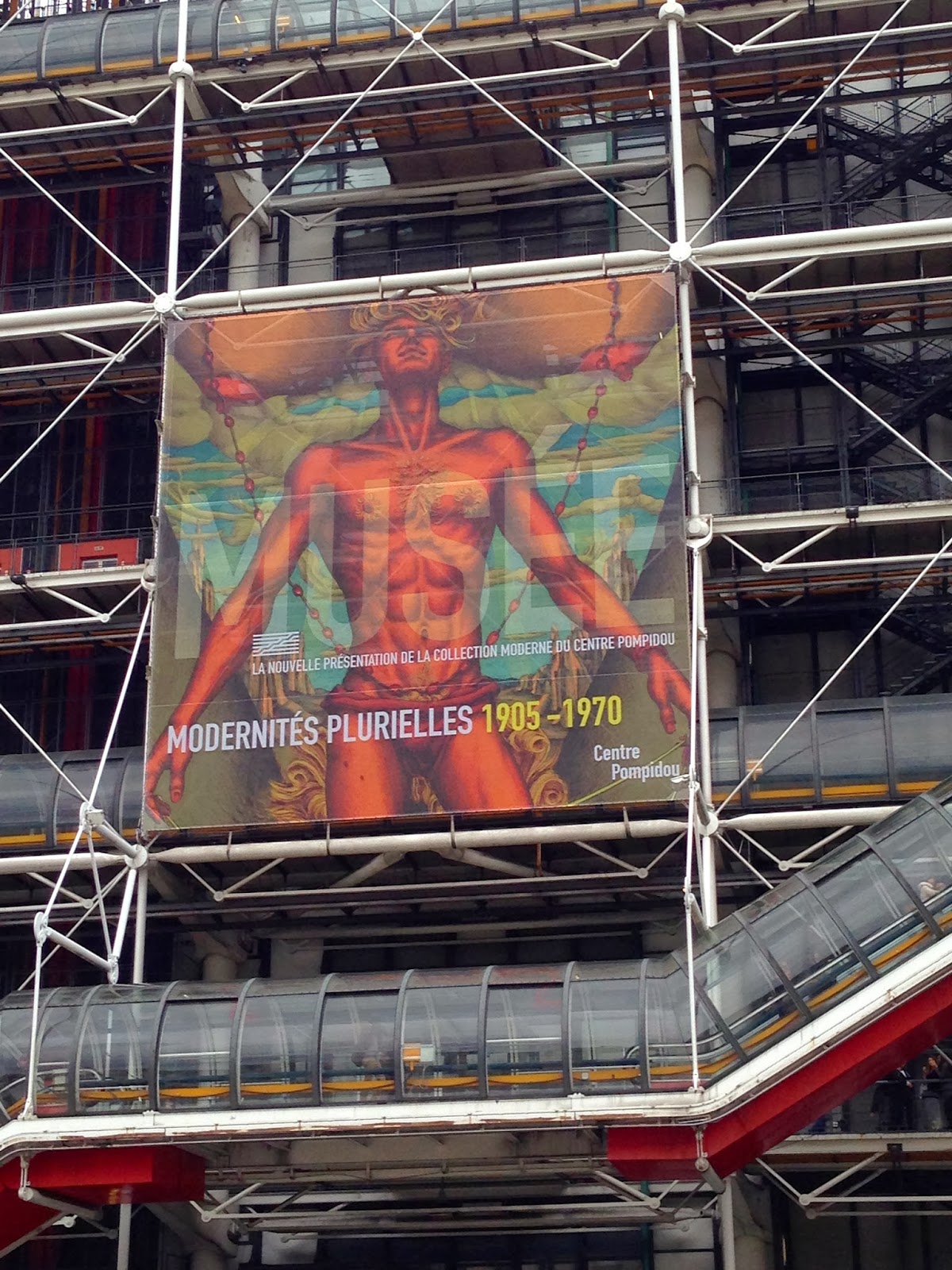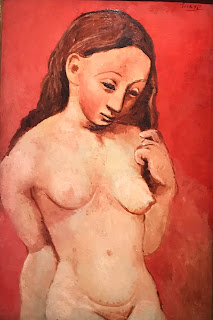Another year has started although I will not be posting this chapter for maybe another week. Belated perhaps but a very happy 2015 to you all.
Between the two festivities, I went to Lyon. My main reasons were to see the Antonín Leopold Dvořák (1841-1904) opera Rusalka at the Lyon opera house and « The King and I ». The latter we had seen in the Chatelet theatre earlier in the year - or last year now. With Lambert Wilson in the role of the King and the Anglo-Swiss soprano Christine Buffle. The show had excellent critics. I was very disappointed. « My » King of Siam is and always will be, Yul Brynner. Although a vague attempt was made to turn Lambert into the Siamese King- this tall, slender, French-English actor just did not convince me. His singing voice next to the soprano’s was just not up to it. What would Lyon bring? No décor and cut to nearly two hours without an interval, it was enchanting. And the main characters were endearing and credible. Rusalka was pure kitsch « pulling » a smile to my lips everyone and again - but somehow it didn’t work. I actually sat through the three and a half hours which is a miracle but I kept on asking myself, « how far could it go? ». Too far!!!
 |
| The Gardens |
Versus Paris, it was sleeting the day I arrived but the Monday dawned dry, very cold but sunny. The first outing was to the Beaux Arts. I have already shared this enchanting museum with you in April last year - (
BEAUX ARTS IN LYON 17TH APRIL,)
this time it was a major exhibition on Jacqueline Delubac (1907-1997). It presents Delubac as an actress, the “most elegant woman in all of Paris” and most of all, an art lover and collector who, in 1998, bequeathed thirty-eight highly significant works of art to the Museum of Fine Arts in Lyon, the city of her birth

Jacqueline Delubac left Valence (South of France), where she lived for most of her childhood, for Paris in the 1920s where her theater career began in 1931 with performance in a play by Sacha Guitry (1885-1957). She became his third wife in 1935 and moved into his ‘private apartments’ - where she found herself surrounded by works of art. On stage as in the streets of Paris, she was the incarnation of the prevailing sense of elegance and avant-garde fashion. After playing twenty-seven theater roles and featuring in twenty-five films, Jacqueline Delubac, separated from Sacha Guitry in 1939, ended her acting career at the beginning of the 1950s and began to build her own collection of art works. A well-known figure of Parisian high society, she shared her love of art with Myran Eknayan, (1892-1985, a diamond merchant) her new companion and himself a passionate art collector. She married him later on in life, in 1981.
Considering the future destiny of her collection from 1988 onwards, Jacqueline Delubac, with no designated heir, decided to bequeath her works of art to a public art institution. After her death in 1997, the Museum of Fine Arts in Lyon became the custodian of 35 paintings and pastels by Monet, Manet, Renoir, Degas, Bonnard, Vuillard, Léger, Braque, Picasso, Miró, Bacon and others. This exceptional legacy, which was supplemented by several bronze statues by Rodin and 19th century paintings that had belonged to Myran Eknayan, was first revealed to the public in 1998 in newly-renovated viewing rooms at the museum. The more modern and contemporary works from her collection are a point of reference for 20th century art and these of course were what interested me.
The collections belonging to her husbands were very classical. Of course there was nice things to see but when I came to the galleries with what Jacqueline had invested in, it was sheer delight. Four Picassos to begin with not to mention Francis Bacon, Wilfredo Lam and many artists I tend to cross borders for. We were allowed to take photos which had not been the case on my first visit to the Beaux Arts, but this time around, I took what really pleased me. Surprisingly there were more than I thought there would be considering the full collection. Sometimes too I had added photos of her Hotel Particular on the Quai d’Orsay
 |
| Modigliani (?) Nu assi |
 |
| Picasso - Nu aux bas rouges 1901 |
 |
| Renoir Jeune fille au ruban bleu 1888 |
 |
| See the Modigliani? |
 |
| Monet - Le déjeuner sur l'herbe 1865-66 |
 |
| Another version of Monet's painting |
 |
| Odilon Roche - Deux nus enlacés |
 |
| Odilon Roche - Deux nus enlacés |
 |
| Paul Delvaux - The two friends 1944 |
 |
| Rodin - Le penseur 1881 |
 |
| Degas 1903 |
 |
| Odilon Roche - Deux nus enlacés |
 |
| Georges Mathieu - 1982 |
 |
| Hans Hartung T1955 |
 |
| Yves Tanguy |
 |
| Paolo Vallorz - Jacqueline Delubac 1960 |
 |
| Picasso - La Visite, Deux femmes assises 1933 |
 |
| Wilfredo Lam - La Femme au couteau |
 |
| Georges Braques - Femme au chevalet 1936 |
 |
| Jean Fautrier - My Fair Lady 1956 |
 |
| Jean Fautrier - My Fair Lady 1956 |
 |
| Serge Poliakoff - Composition 1955 |
 |
| Picasso - Femme assise sur la plage 1937 |
 |
| Fernand Leger - Deux Femmes au bouquet 1921 |
 |
| Ajouter une légende |
 |
| Francis Bacon - Etue pour une corréda N°2 1969 |
 |
| Albert Bitran - 1986 |
 |
| Albert Bitran - 1986 |
 |
| Victor Brauner- Les Voies abandonnées - 962 |
 |
| Raooul Dufy - L'Atelier aux raisins 1942 |
 |
| Picasso - Baigneuses 1908 |
 |
| Georges Rouault : La Sainte Face - 1938-39 |
 |
| Ajouter une légende |
 |
| Edouard Manet - Jeune femme à la pèlerine, Jeanne Demarsy 1881 |
 |
| Bernard Buffet - Portait of J.D 1955 |
 |
| César - Lampe Expansion 1976 |
 |
| The lamp at the right |
 |
| Paul Lavaux without the glare8 |
 |
| A poster for one of their plays |
 |
| Jean-Baptiste Greuze - Le Retour du chasseur 1775 |
 |
| Renoir |
 |
| Francis Bacon - Carcasse de viande et oiseau de proie 1980 |
 |
| Jean Dubuffet - La Verre de'eau V 1967 |
 |
| Pierre Bonnard - poisson sur une assiette 1921 |
She may have been considered to be one of the most glamorous woman in Paris of that period, but in my books she was far more striking as she got older. What poise……
 |
| Ajouter une légende |
 |
| JD Dans son appartement quai d'orsay 1993 |
 |
| J.D. and Sacha Guitry |
 |
| Bernard Richebé - J.D In a Pierre Cardin dress |
Was I ready for lunch following my two and a half hour visit? I was still « digesting » the collection so could wait for a while. There on the top of the hill was the Basilica at the Fourviere. I had not visited it on my first trips to Lyon. Now was the moment to do so on such a wonderful clear and cold day. The previous day I had made my way up in La Croix Rousse. Those of you who know Lyon will remember just what a hilly city it is. It was madness to walk up to the theatre as I did. It was snowing. Now my climb up to the Basilica was made easier by the weather but even so, at one point I was wondering if I should take the left turn - or the right.
The Basilica is baroque as can be but had a wonderful feeling to it which I have not found in other churches of this period. Even the little crèche was charming, not to mention Mary with her family and a Lion….first time I had seen that. I was glad to have made the effort.
 |
| The Basilica |
 |
| Looking up |
 |
| The creche |
 |
| See the Lion? |
The next was a big surprise. The Religious Art Museum was showing an artist named Evaristo. Looking at the poster and then at his paintings, I found them very much like Georges Rouault. Amazingly so.
He was born in Catalogna in 1923. He never got over the atrocities that he had lived through in Spain. Apparently too, a witness to his parents’ death during the Spanish war. When 13, he left Spain and came to Saint-Fons which is a Lyonnaise suburb.
Later and as an adult he was a laborer during the day and in his free time, an artist. His work is what he lived. Death is never far off. Solitude and despair. There is something very touching about it. I don’t know how much he was influenced by the modern masters but for some of his work, I would have sworn it was Rouault. The museum itself was charming too.
Most works were without titles
 |
| Evaristo - L'enfant Catalan - 1992 |
 |
| Solitude 1969 |
 |
| Christ aux douleurs |
 |
| Ajouter une légende |
 |
| Vierge à l'enfant devant Fourvière1996 |
 |
| Maternité 1956 |
 |
| Crucifixion au pain 1988 |
 |
| Ecce Homo 1986 |
A lovely end to a lovely day.
Now the walk down to Lyon. It was much easier…..
 |
| See the plait? |
A breakfast the following morning I sat behind this….rather quaint that plait don’t you think?






























































































Commentaires